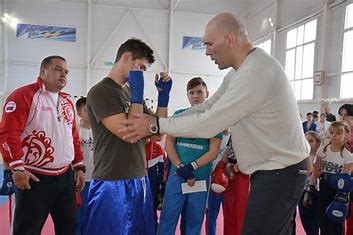The Cossacks of Chechnya
Grozny today bets on the promotion of the Kazačestvo movement - Russia's Cossacks - to revive mobilisation for war and to counter drug trafficking. A bet on yesterday's enemies that the Kremlin has always considered a guarantee of loyalty in the peripheries of the empire.
Moscow (AsiaNews) - The authorities of Chechnya have presented a large program of "state strategy" demonstrations linked to the Kazačestvo, the movement of the Cossacks of Russia, which will be involved in the Caucasus territory above all to revive the mobilization for war, and also to counter drug trafficking.
The Cossacks were born as "free men" at the beginning of the ancient conflicts between Russians and Polish-Lithuanians, and the attempt to appropriate their traditions is one of the most effective propaganda moves in the face of current conflicts.
In the decree signed by the Prime Minister of Groznyj, Muslim Khuchiev, some salient points of the operation are listed, such as the dissemination of Kazachestvo among Chechen youth, the analysis of the conditions of Cossack culture on the territory of the republic and the celebrations for Cossack Day of Terek, from the name of the ancient Caucasian locality that served as a headquarters for the semi-nomadic groups of the area.
The Cossacks must also be integrated in a specific manner into the contingents of the Ministry of Defense and Rosgvardia, placing themselves in strategic positions in Chechnya, and the aid to be allocated to the families of the wounded and fallen in the war in Ukraine is specified.
Currently only 308 Chechen citizens are members of Cossack societies, precisely in the Terek-Grebensk province, and there are plans to significantly strengthen this membership.
It should be remembered that during the Caucasian wars of bygone times the Cossacks were enemies of the gortsy, the mountain dwellers of the region. We remember Cossack heroes such as General Aleksej Ermolov at the time of the Napoleonic wars, considered by the Chechens as one of the greatest criminals in local history, while the "mountain" enemies of the Cossacks, such as Imam Shamil, Bajsangur Benoevskij or Sheikh Mansur are idols historians of Chechnya.
The Cossacks were in fact among the main protagonists of the Russian conquest of the Caucasus between the 18th and 19th centuries, but during the revolution they opposed the Soviets, then ending up under the persecution of the Bolshevik regime.
After the end of the USSR, the Cossacks tried to revive their community, appealing to the law "On the rehabilitation of repressed peoples", and today there is a Kazakhestvo Council at the presidency of Moscow, which coordinates with the military structures and has activated sections in all regions, as well as in Chechnya, Ingushetia and Dagestan.
Special subsidies are assigned to the Cossacks to "recover historical-ethnographic memory", and in each region the "Cossack question" ends up influencing local politics as well. The regional authorities are interested in additional funding linked to the activities of the Cossacks, who can participate in military life directly in the army, joining volunteer companies or forming their own fighter structures for various destinations, under the aegis of the "historical legacy".
The republic of Ramzan Kadyrov, being the most animated by the war spirit, therefore supports with great emphasis the development of the small group of Cossacks of Chechnya, and the president himself actively participates in the sessions of the Council of Moscow and Groznyj, to express his " support for Cossack culture".
The presence of the Cossacks on the outskirts of the empire, moreover, has always been considered by the Kremlin as a guarantee of total loyalty. Today the "decorative" performance of the Cossacks serves to cover the often unscrupulous actions of the Kadyrovtsy, the Chechen fighters in Ukraine and beyond, guilty of numerous massacres beyond the control of the military leadership itself.
There is currently an army corps of Cossacks operating in the war in Ukraine which brings together various sub-groups, the Kubansky, made up of elements from the regions of Krasnoyarsk, Adygea and Karachaevo-Cherkesja: it has over 60 thousand members and to which smaller groups such as Chechen. Its commander, hetman Alexander Vlasov, defines it as "the mobilization reserve of the whole country", together with the newly formed Terek battalion of 15,000 soldiers entrusted to the new hetman Vladimir Savchenko.
The effectiveness of the presence of the Cossacks in the war also counts on the difficulty of the Ukrainians to consider them as real enemies, being descendants of a common heritage, unlike the Russians, Tatars, Buryats or the Chechens themselves.
07/02/2019 17:28
12/02/2016 15:14







.png)










